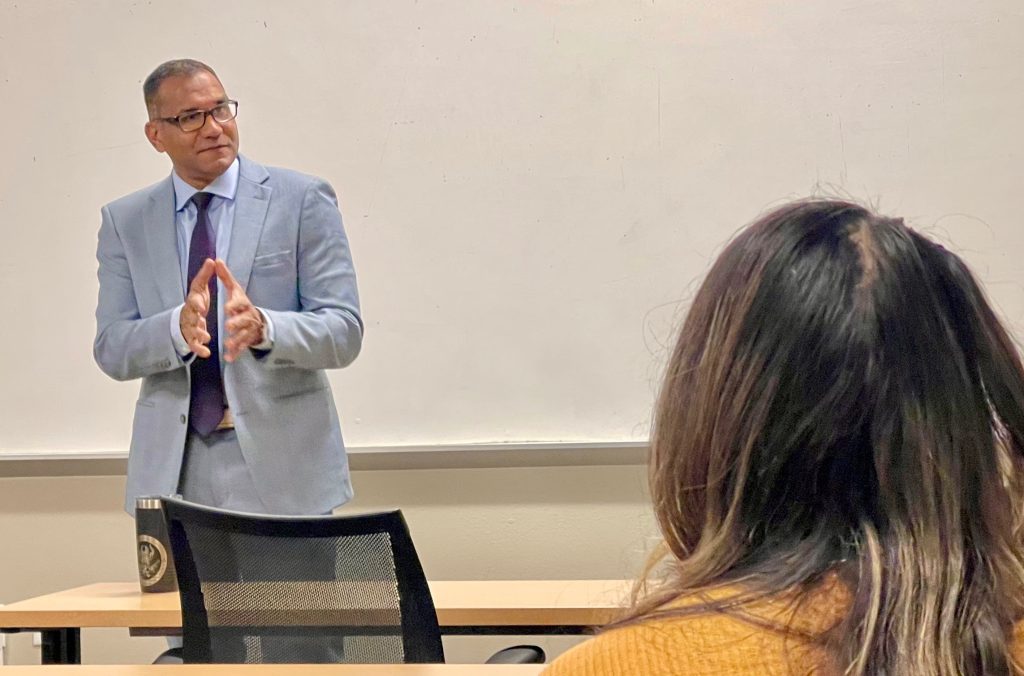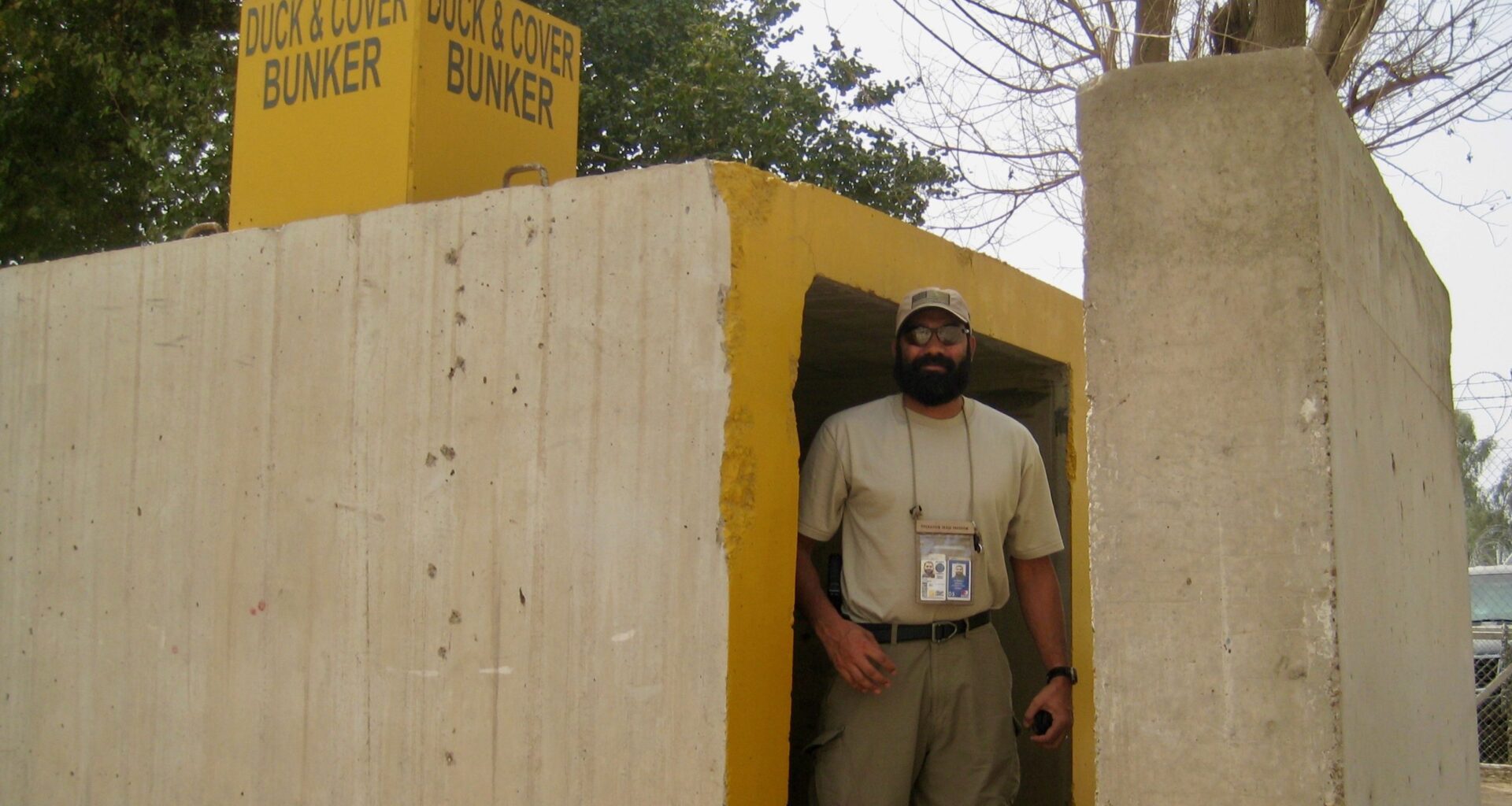From working in counter-terrorism and hostage negotiation, to digging into homicides and cold cases, Arvinder Ginda’s career has caused him to change focus to those suffering in silence with ’53 Reflections’
April 27, 2013 wasn’t a day that FBI Special Agent Arvinder Ginda would forget during his long career in federal law enforcement. On that afternoon, an 8-year-old girl named Leila Fowler was found viciously stabbed more than 20 times in her west Calaveras County home. Arriving sheriff’s deputies were confronted with a numbing spectacle. Local detectives who responded were told that the child’s lifeless body was found in a bedroom and then moved out onto the porch. They were also informed that the victim’s 12-year-old brother had been there at the time of the slaying: He was claiming that a strange man with silver hair had forced his way into the house, savagely attacked his sister and then fled out into the sprawling oak woodlands of cattle country.
A herculean manhunt was instantly underway.
Meanwhile, back at the house where Leila was murdered, some pieces of evidence just weren’t adding up. Calaveras County Sheriff’s detectives reached out to the FBI for assistance. The agency quickly sent a team that included Ginda, its expert hostage negotiator who was also part of the bureau’s Behavioral Analysis Unit.
Though Ginda worked out of the FBI’s Sacramento and Stockton field offices, he was no stranger to rural crime scenes. When Ginda was 8, his family immigrated from India to the small town of Live Oak, an almond and tomato-growing mecca in north Sutter County. Ginda grew up there. Later, his first stint as a detective was investigating violent crimes for the Sutter County Sheriff’s Office, which meant navigating cases that happened in rustic settings like Meridian and Pleasant Grove. When Ginda stepped into the intricacies of Leila Fowler’s murder on a country lane lined with horse corrals, animal pens and flag-struck outbuildings, it wasn’t totally unfamiliar territory for him.
Working closely with Calaveras detectives, Ginda helped determine what is now recognized, legally, as the truth of what happened on that terrible day. It’s a story that ended with law enforcement arresting the little girl’s brother, who was ultimately found guilty — twice — during a long and exhausting saga in the state’s juvenile justice system.
The Leila Fowler crime scene was beyond disturbing and Ginda knows it took a toll on some deputies who witnessed it. Over the years, he’s also seen people — troops, investigators and intelligence officers — endure other forms of lasting psychological battery. Early in Ginda’s FBI career, while working counter-terrorism on the High Value Detainee Interrogation Group, he was twice sent to war zones in Iraq to negotiate for the return of hostages. Between handling murder scenes and cold cases at home, and having been basked in “the moral and emotional weight” of constant safety threats in Baghdad, Ginda’s career has included an up-close view on the demons of trauma that slowly destroy people from within.
Exactly one day after retiring from FBI, the former special agent sat down with SN&R to discuss his new book, “53 Reflections: A Guide to Healing Through Human Pain,” which he hopes will start dialogs about healing, not just for law enforcement and military veterans, but for anyone who has undergone experiences in life that continue to haunt and paralyze them.
“What I really wanted to focus on was this idea of helping people take their trauma, or the difficult memories they might have, and really turn that into an emotional imprint, where they can make it a part of their DNA — they can make it a part of their origin story,” Ginda says, “so rather than running away from it, they have a way to allow themselves to write about it and be able to share it.”
For most of his life, Ginda never imagined being ‘an author’ was in the cards. When his family first moved to Sutter County from Nakodar, India, he didn’t speak a word of English. He jumped into discovering his new country, learning the language by watching 1980s cartoons and sitcoms before he practiced how to deliver their lines in the mirror. Ginda’s journey even included converting from Hinduism to Christianity when he was 15 — a move that baffled his parents at the time. By the time Ginda graduated from Oroville’s Butte College Law Enforcement Academy, he was ready to chase his dream of being an investigator. Flash forward to 2004, Ginda was officially accepted into the FBI academy. After graduating, he started working at the bureau’s San Francisco field office, where he was assigned to domestic terrorism. Though he’d go on to bigger, broader challenges, Ginda always had a nagging insecurity about his abilities with words on paper.
“Writing isn’t something I ever thought I would really be good at,” he acknowledges. “It wasn’t until about 2021 that I found this passion.”
And that passion is paying off. “53 Reflections” is written with pensive, deliberate prose and its ideas flowing from page to page as sparks for deep introspection. Its opening quote, from Rumi, reads “The wound is the place where the light enters you.” Ginda believes in this so much that he designed his book to have 53 spots for journal entries from the reader, allowing them to personalize their own path to gradual restoration.
 Retired FBI agent Arvinder Ginda talks to students at William Jessup University. Courtesy photo
Retired FBI agent Arvinder Ginda talks to students at William Jessup University. Courtesy photo
Retired Calaveras County Sheriff’s Detective Josh Crabtree, who worked alongside Ginda on the Leila Fowler investigation, isn’t surprised his colleague’s years of being immersed in the Behavioral Analysis Unit have given him insights into people’s hidden feelings and secrets.
“He was the guy, at every briefing, who was picking things apart,” Crabtree notes. “He was the one always thinking about different things that could be going on in [the perpetrator’s] mind. I remember he was often putting things in that perspective … I can say that I’ve seen him talk to people, and not know a damn thing about them before the encounter — or know anything about their past — and in just asking a few personal questions, show the ability to pinpoint what kind of life they’ve lived, and know, generally, what kind of struggles they’ve had.”
Crabtree adds that he worked with the special agent on other cases over the years, and after the two became friends, Ginda helped talk someone who is close to Crabtree through a devastating moment in their life.
“He has that attitude that, if you’re on his good side, you’re in his family,” Crabtree reflects.
Another person who’s been impressed by Ginda is Pete Constant, a former San Jose police officer and city councilman who’s now the Chair of Public Policy at Rocklin’s William Jessup University. Constant first met the articulate G Man through a mutual friend in law enforcement. After having Ginda do some guest lectures at the college, Constant brought him on as an adjunct professor, teaching classes on procedural justice and implicit bias, not to mention international terrorism.
“He’d talked to students about his path from being born into poverty in India, and then coming here to the United States and becoming a federal law enforcement officer, and when he did, he had such a good connection with the students,” Constant says. “I was really impressed with how he engaged them on a personal level and how they gravitated towards him.”
Ginda is enjoying his post-law enforcement career as an instructor, but he’s also looking forward to hearing feedback about his new book.
“I’ve seen a lot of human suffering,” he admits. “I’ve seen some of the most horrible things that people are capable of doing. But I’ve also seen how beautiful humanity can be … I wrote this book so people would know they’re not alone.”
Scott Thomas Anderson is also the writer and producer of the true crime podcast series “Trace of the Devastation.”

